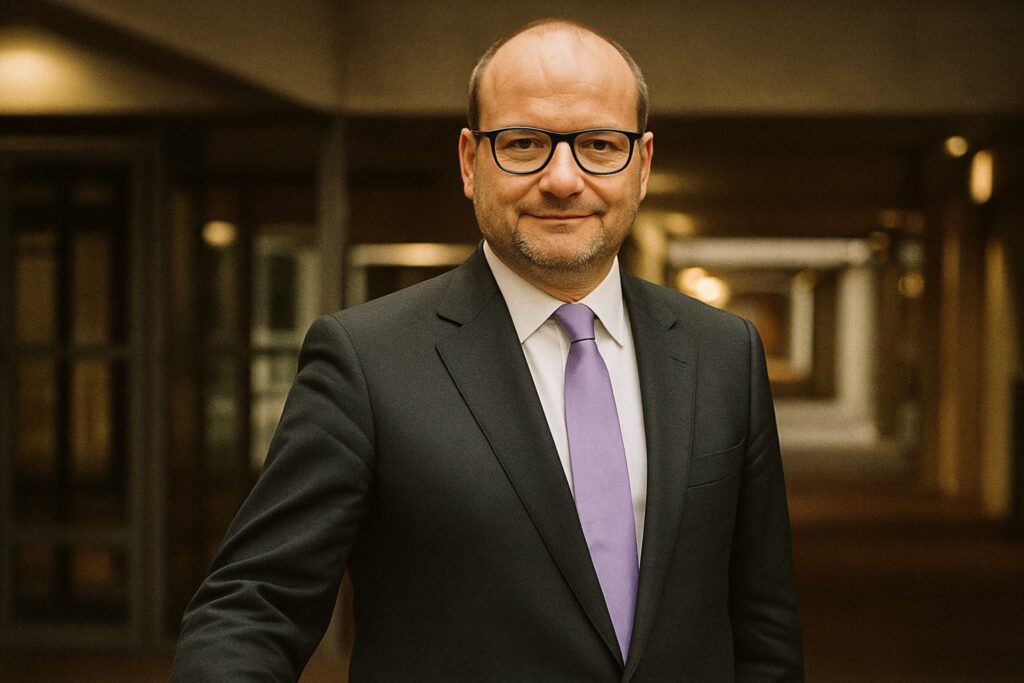A vanishing safety net worth sixty billion
Few figures travel the corridors of development ministries this summer with the velocity of the €60 billion projected collapse in official development assistance for 2025. The number, disclosed by Agence française de développement chief executive Rémy Rioux before the French National Assembly, is not merely a budgetary artefact. It encapsulates a systemic retreat from the solidarity architecture painstakingly erected since the 1960s. According to preliminary tallies circulating in Paris and Brussels, overall aid volumes are set to contract by roughly nine percent year-on-year, an erosion unmatched since the immediate aftermath of the 2008 financial crisis (OECD provisional brief, April 2024).
Washington exits stage left—and pulls the curtain
The epicentre of the tremor lies in Washington. President Julia Martinez’s surprise decision on 8 February to shutter the United States Agency for International Development, ostensibly to redirect resources toward domestic infrastructure, removed close to €40 billion from the ledger in a single stroke. USAID had accounted for nearly one quarter of global bilateral aid in 2023 (USAID Congressional Budget Justification, 2023). A senior State Department official, requesting anonymity, conceded that “the political appetite for overseas commitments has evaporated faster than we anticipated.” The White House insists that humanitarian emergencies will continue to receive ad hoc appropriations, yet the legislative calendar suggests otherwise: no replacement instrument is currently before Congress.
European austerity compounds the shock
While the American volte-face dominates headlines, Europe’s quiet austerity may prove equally destabilising. Germany plans to trim its Entwicklungszusammenarbeit envelope by ten percent, Spain by twelve, and even traditionally generous Scandinavia is scaling back climate-adaptation grants (Berlin Finance Ministry draft budget, May 2024). In France, the AFD reports a halving of its budgetary transfers next year, a contraction described by Rioux as “a shock few agencies have ever endured under the Fifth Republic.” The broader macroeconomic context is unforgiving: inflation-indexed debt servicing and defence rearmament leave little space for discretionary spending.
Collateral damage across the Global South
The immediate victims of the fiscal diet are countries already coping with overlapping crises. The Sahel, dependent on concessional financing for basic state functions, anticipates a shortfall of at least €1 billion, jeopardising salaries for community health workers. In Bangladesh, where USAID funds underwrite nearly a third of primary-school nutrition programmes, Education Minister Dipu Moni warned of a “generational setback” if substitute financing is not secured. The ripple effects extend to multilateral institutions: the Global Fund to Fight AIDS, Tuberculosis and Malaria projects a €750 million hole in its replenishment cycle, while the World Bank’s International Development Association faces upward pressure on its already concessional interest rates (World Bank, Spring Meetings communiqué).
The geopolitical calculus behind the retreat
Analysts see more than fiscal caution at play. The Carnegie Endowment’s Amaka Anku argues that domestic political currents—populist in the United States, sovereigntist in parts of Europe—now view development assistance through a securitised lens, prioritising near-term migration deterrence over long-horizon poverty reduction. Beijing, for its part, has not stepped into the void with the alacrity some predicted. Although China’s Belt and Road Initiative still disburses sizable loans, its own economic slowdown and debt-renegotiation headaches in Zambia and Sri Lanka have tempered outward flows (Brookings, January 2024). The vacuum, therefore, risks remaining unfilled, eroding Western soft power precisely as strategic competition with Russia and China intensifies.
Anxious multilateralism seeking lifelines
The timing is awkward. From 30 June to 3 July, diplomats will converge on Seville for the fourth UN Conference on Financing for Development, tasked with reviving the embattled Addis Ababa Action Agenda. Draft conclusions obtained by this journal urge “novel blended-finance vehicles” and the mobilisation of special drawing rights, yet negotiators privately acknowledge that such instruments cannot replace lost grant money at parity. Ideas once relegated to academic seminars—taxes on maritime shipping emissions, a global digital levy—suddenly feature in ministerial speeches. Whether political capital can be assembled behind them remains uncertain, especially with electoral calendars tightening in Brussels and Washington.
A narrowing window for corrective diplomacy
In Parisian think-tank hallways the phrase “pre-emptive triage” has gained currency: agencies are prioritising programmes with immediate humanitarian payoffs over longer-term institution-building projects. Yet history cautions against excessive pessimism. Previous retrenchments in the early 1990s and after 2011 were partially reversed once growth resumed and strategic shocks—be they pandemics or migration waves—re-elevated development on the agenda. What distinguishes 2025 is the simultaneity of fiscal stress and ideological scepticism toward globalism. Absent a credible counter-narrative, the reputational cost for Western donors could prove enduring. The months leading to Seville may therefore represent the last feasible window for a collective diplomatic pivot capable of averting a lost decade for the world’s most vulnerable populations.

